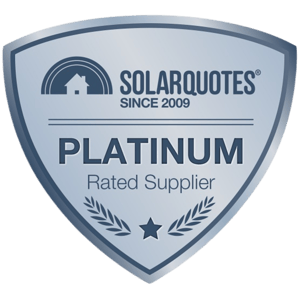Efficiency Boost: Best Practices for Integrating Solar Power in Business

Discover the top strategies for seamlessly incorporating solar power into your business operations and maximising efficiency.
Significance of solar power adoption for businesses
Solar power adoption holds significant benefits for businesses looking to reduce their carbon footprint and lower energy costs. By harnessing solar energy, businesses can contribute to a cleaner environment while also cutting down on electricity expenses. This move towards sustainability can enhance a company's reputation and attract environmentally conscious customers.
Embracing solar power demonstrates a commitment to renewable energy and showcases forward-thinking leadership within the industry.
Understanding the specific needs and constraints of businesses
Before integrating solar power into business operations, it is crucial to understand the specific needs and constraints of each individual company. Factors such as available space for solar panels, energy consumption patterns, budgetary considerations, and regulatory requirements must be carefully assessed. Tailoring the solar power system to meet the unique requirements of the business ensures optimal performance and maximum benefits.
Exploring on-site versus off-site solar options
Businesses have the option to install solar panels on-site or participate in off-site solar projects through virtual net metering or community solar programs. On-site solar installations provide direct access to solar energy and potential cost savings, while off-site options offer flexibility and scalability for businesses with limited space or resources. Understanding the pros and cons of each approach is essential for making an informed decision that aligns with the business goals.
Calculating return on investment and payback periods for solar projects
Assessing the financial viability of solar projects involves calculating the return on investment (ROI) and determining the payback period. By analysing the upfront costs, energy savings, available incentives, and tax benefits, businesses can make informed decisions about the economic feasibility of solar power adoption. Understanding the financial implications helps businesses evaluate the long-term benefits and make strategic investments in renewable energy.
Navigating utility interconnection processes and net metering policies
Connecting a solar power system to the utility grid requires navigating complex interconnection processes and understanding net metering policies. Businesses must comply with regulations, obtain permits, and establish agreements with utility companies to ensure seamless integration of solar energy. By staying informed about interconnection requirements and incentive programs, businesses can streamline the process and maximise the benefits of solar power generation.
Overseeing installation to minimise disruption to business operations
Installing solar panels may require temporary disruptions to business operations, such as roof access and equipment installation. By planning the installation process carefully and coordinating with experienced solar contractors, businesses can minimise downtime and ensure a smooth transition to solar energy. Proper project management and communication are essential for overseeing the installation without impacting daily business activities.
Establishing a maintenance schedule to ensure system longevity and efficiency
Regular maintenance and monitoring are essential for ensuring the longevity and efficiency of a solar power system. Establishing a maintenance schedule that includes inspections, cleaning, and performance checks helps prevent potential issues and maximise energy production. By investing in proactive maintenance, businesses can protect their solar investment and enjoy reliable performance for years to come.
Staying informed about changes in incentive programs and eligibility criteria
Incentive programs and eligibility criteria for solar power adoption are subject to change, making it essential for businesses to stay informed about updates and opportunities. By keeping abreast of new incentives, rebates, and tax credits, businesses can take advantage of cost-saving measures and maximise their return on investment. Regularly reviewing incentive programs ensures that businesses make the most of available benefits and remain competitive in the renewable energy landscape.
Highlighting cost savings, environmental benefits, and other positive outcomes
Emphasising the cost savings, environmental benefits, and positive outcomes of solar power adoption can help businesses communicate the value of renewable energy investments. By showcasing the financial advantages, environmental impact, and sustainability initiatives associated with solar energy, businesses can attract customers, investors, and employees who align with their values. Highlighting the holistic benefits of solar power reinforces the business case for sustainable practices and sets a positive example for the industry.
Emphasising the transformative potential of solar energy in shaping the future of business operations
Solar energy has the transformative potential to revolutionise business operations and drive sustainability in various industries.
By embracing solar power, businesses can reduce reliance on fossil fuels, decrease greenhouse gas emissions, and contribute to a greener future.
The integration of solar energy into business operations not only improves efficiency and cost-effectiveness but also positions companies as leaders in environmental stewardship and innovation. Emphasising the transformative power of solar energy inspires positive change and propels businesses towards a more sustainable future.
%20(1).png?width=265&height=96&name=www.smartenergyanswers.com.auhs-fshubfsSmart%20Energy%20Answers%20Logo%20(HIRES)%20(1).png)

.png?width=514&height=121&name=Tesla%20Powerwall%203%20(new).png)







